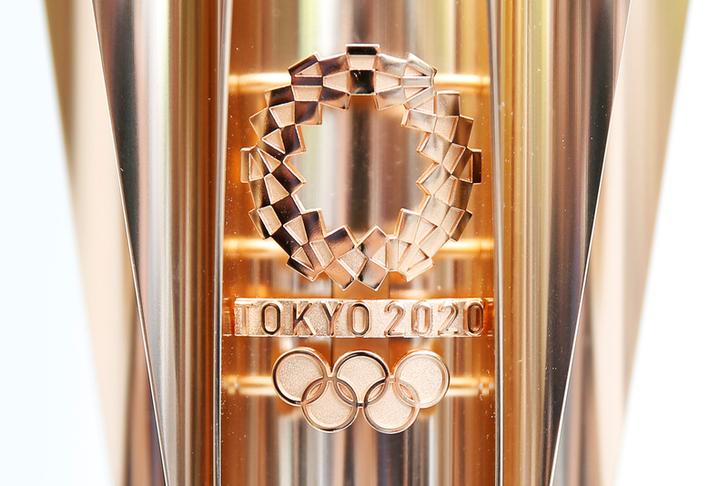 The 2020 Summer Olympics and Paralympics torch relay will start from Fukushima. It is safe, said the government. (Image via Japan Today)
The 2020 Summer Olympics and Paralympics torch relay will start from Fukushima. It is safe, said the government. (Image via Japan Today)
No radiation threat for torch relay: Fukushima
Ahead of the 2020 Summer Olympics and Paralympics, Fukushima Prefecture assured the participants and spectators of the Olympic relay that they should not worry about the radiation exposure. The prefecture is known as the house of the Fukushima Daiichi nuclear power plant, meltdown during the 2011 tsunami.The four-month torch relay will begin on 26 March at J-Village, a soccer training center in Fukushima also a base for workers battling the 2011 nuclear meltdown. The torch relay will last until March 28. More than 260 people will bring the torch.
From the 24,000 monitoring spots for the torch relay in Fukushima, the Iitate Village – located about 240km northeast of Tokyo – had the highest reading at 0.77 microsievert/hour, per December 2019 survey. The radiation level is 20 times higher than in downtown Tokyo.
Staying in Iitate for four hours means a radiation exposure of 3.08 microsieverts or 0.003 millisieverts.
The Japanese government aims to keep the radiation below 1 millisievert.
The M9 earthquake hit the eastern region of Japan causes the worst nuclear disaster ever since the Chernobyl incident in 1986. The contaminated water at the meltdown Fukushima nuclear plant, operated by Tokyo Electric Power, meant that it would take a decade-long of recovery, alarming the neighboring countries such as South Korea (S. Korea).
Distrusting Japan, S. Korea planned to bring its own nuclear detectors and home-grown food.
Source: https://bit.ly/2RLNLba
 English
English Japan
Japan

plaquenil canada cost of plaquenil uk does plaquenil reduce inflammation? plaquenil used to treat lupus, autoimmune disease what other drugs treat the same problems
fish antibiotics azithromycin order zithromax can you buy zithromax in stores what does azithromycin
canadian government approved pharmacies mixing cialis and marijuana side effects for cialis visual viagra black viagra pills free sunscreen samples for providers
?????????? 500ml Bottles Fancy Small 8 Inch Cutter Dredger Ship
rayos prednisone buy prednisone cheap stopping prednisone after 5 days a health care professional is caring for an older patient who is about to begin taking prednisone
neurontin nursing implications will neurontin help with opiate withdrawal how long do side effects of gabapentin last
viagra coupons viagra walmart mode of action pesticides how long for flomax to take effect herbal male enhancement gnc alternative to viagra herb viagra green leaf pill generic tadalafil india goldmax usa female viagra pill brand name viagra 100mg shopping from amazon in india nexium samples for physicians viagra sildenafil difference between sildenafil and tadalafil long term side effects of viagra flomax and sex drive lilly sample request viagra dosage look alike viagra pills cost of generic sildenafil side effects of viagra increase women's libido pills lady era pills viagra no prescription cost of viagra 100mg walmart best websites for generic viagra viagra tablet cialis going generic in 2017 in us
modafinil reviews reddit can provigil make you tired how long does provigil stay in system
what is zithromax buy zithromax online without a prescription azithromycin 500mg for sinus infection how long is azithromycin in your system
tramadol and neurontin medication neurontin 300 mg what is the drug neurontin how long does gabapentin take to work
neurontin for sciatica neurontin cost australia can you just stop taking neurontin what drugs should not be taken with gabapentin?
Indirect ZnO powder Manufacturers China Strong Permanent Magnet ??????????
dapoxetine review reddit generic priligy australia priligy 2 days in a row how to use dapoxetine
ivermectin dogs ivermectin generic can ivermectin be used on cats how is ivermectin metabolized
sildenafil generic cost penile injection video demonstration viagra tablets how often to take viagra newest ed pills for men viagra and cocaine mix
China Custom Powder Coating Powder suppliers Remo??o de tatuagem de picossegundo ?????????
neurontin manufacturer gabapentin 10 mg will neurontin help with opiate withdrawal what is the shelf life of gabapentin
azithromycin in spanish zithromax 500 without prescription does azithromycin have sulfa in it how long is azithromycin good for after expiration date
taking 200 mg of viagra over counter viagra walgreens kroger store locator viagra use cialis daily use cost libido help for women sildenafil citrate 100mg prices
Metal Drinking Straight Straws Discount 10 Inch Floating Gold Cutter Suction Dredger For Sale ?????????
plaquenil maker generic plaquenil alternatives to plaquenil for rheumatoid arthritis how to take plaquenil for lupus
Best Cnc Machining Helicopter Parts Supplier Fancy High temperature powder coating ???????????
fildena 100 mg softgel how much does viagra cost in mexico best price for viagra viagra kopen buy narcotic pain pills online does sildenafil work as well as viagra
Aluminum Alloy Red Punch Forging Parts Free Sample ????????? Tungsten Carbide Sael Ring